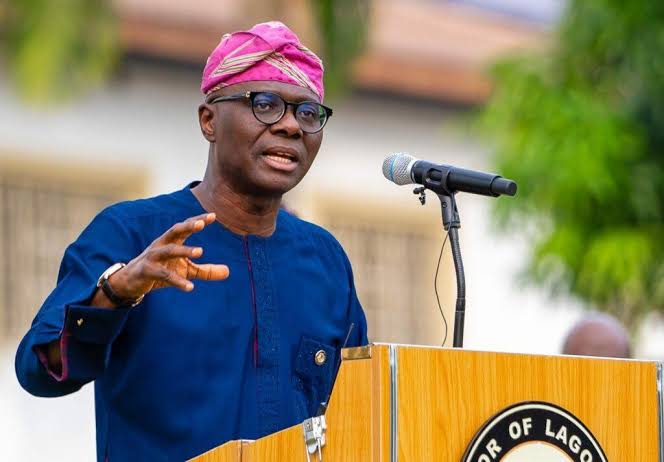the Lagos State Government has successfully relocated the iconic Okobaba Plank Market from its longstanding location in Ebute Meta to a state-of-the-art facility in Agbowa, Epe, aptly named Timberville. This ambitious project, announced by Dr. Olajide Babatunde, Special Adviser to Governor Babajide Sanwo-Olu on e-GIS and Urban Development, during the 2025 Ministerial Press Briefing, marks a significant milestone in the state’s ongoing urban renewal and economic empowerment initiatives. Alongside the relocation, the government has constructed 260 modern two-bedroom flats to accommodate traders, ensuring a seamless transition and improved living conditions at the new site.
A New Chapter for Okobaba Plank Market
For decades, the Okobaba Plank Market has been a bustling hub for timber traders in Lagos, serving as a critical economic lifeline for countless families. Located along the waterfront in Ebute Meta, the market was known for its vibrant yet chaotic environment, characterized by sawmills, timber stacks, and a hive of commercial activity. However, the market’s informal setup and proximity to residential areas posed challenges, including environmental concerns, traffic congestion, and safety risks due to the lack of modern infrastructure.
Recognizing the need for transformation, the Lagos State Government initiated plans to relocate the market to a more organized and sustainable location. The choice of Agbowa, a rapidly developing area in Epe, reflects the government’s commitment to decongesting the Lagos mainland while fostering economic growth in peripheral regions. Timberville, the new home of the Okobaba Plank Market, has been designed to address the shortcomings of the old site while providing traders with a modern, efficient, and environmentally friendly workspace.
Timberville: A Modern Trading Hub
Timberville is more than just a market; it’s a carefully planned commercial ecosystem tailored to the needs of timber traders. The facility boasts 204 band saw sheds, 204 sales offices, and additional infrastructure such as power transformers, water systems, and access roads. These amenities are designed to streamline operations, enhance productivity, and create a safer working environment. The inclusion of power transformers ensures a reliable electricity supply, addressing one of the major challenges faced by traders at the old Okobaba site, where power outages often disrupted sawmill operations.
The market’s design also incorporates environmental considerations, with proper waste management systems and measures to mitigate the ecological impact of timber processing. This aligns with Lagos State’s broader sustainability goals, as the government seeks to balance economic development with environmental stewardship. Additionally, the layout of Timberville promotes accessibility and organization, with clearly demarcated zones for different activities, reducing the congestion and haphazardness that characterized the old market.
260 Flats: A Boost for Trader Welfare
One of the standout features of the relocation project is the construction of 260 two-bedroom flats specifically for traders. This initiative underscores the Sanwo-Olu administration’s commitment to not only improving business conditions but also enhancing the quality of life for those who drive the state’s economy. The flats, located within the Timberville complex, provide traders with convenient access to their workplaces, eliminating the long commutes that many endured when the market was in Ebute Meta.
Each flat is designed with modern amenities, offering a comfortable living environment for traders and their families. This housing component addresses a critical need, as many traders previously lived in informal settlements or far-flung areas due to the high cost of accommodation in Lagos. By providing affordable, on-site housing, the government is fostering a sense of community and stability for the traders, enabling them to focus on growing their businesses.
Urban Renewal and Economic Impact
The relocation of the Okobaba Plank Market is a key component of Lagos State’s urban renewal agenda, which aims to transform the city into a modern, sustainable, and inclusive metropolis. By moving the market out of Ebute Meta, the government is freeing up valuable land for redevelopment, potentially paving the way for new infrastructure or residential projects in the area. This aligns with the state’s THEMES+ agenda, which prioritizes Traffic Management and Transportation, Health and Environment, Education and Technology, Making Lagos a 21st Century Economy, Security and Governance, and Tourism and Entertainment.
The project is also expected to have a ripple effect on the economy of Agbowa and its environs. The establishment of Timberville is likely to attract ancillary businesses, such as logistics, food vending, and retail, creating additional job opportunities for residents. Furthermore, the improved infrastructure at Timberville is expected to enhance the efficiency of the timber trade, potentially increasing the sector’s contribution to Lagos State’s economy. The timber industry, a vital part of Nigeria’s construction and furniture sectors, stands to benefit from the modernization of its supply chain, with Timberville serving as a model for other markets across the state.
Community Engagement and Challenges
The relocation process was not without its challenges. The Okobaba Plank Market was deeply rooted in the Ebute Meta community, and some traders initially expressed concerns about moving to a new location. The government, however, engaged extensively with stakeholders, including market leaders and trader associations, to ensure a smooth transition. Consultations were held to address concerns about logistics, costs, and access to customers, with the state government providing assurances of support.
To ease the financial burden of the move, the government has implemented measures to make the new facilities affordable for traders. The allocation of flats and workspaces was done transparently, with priority given to those who were actively involved in the market’s operations. Additionally, the state has promised ongoing support, including training programs to help traders adapt to the new environment and leverage modern business practices.
Join our Whatsapp channel to stay updated always!



f44da0